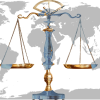Business Transformation Requires Transformational Leaders
Leadership and teaming skills are front and center in times of rapid change. Meet today’s constant disruption head on with expert guidance in leadership, business strategy, transformation, and innovation. Whether the disruption du jour is a digitally-driven upending of traditional business models, the pandemic-driven end to business as usual, or the change-driven challenge of staffing that meets your transformation plans — you’ll be prepared with cutting edge techniques and expert knowledge that enable strategic leadership.
Subscribe to Arthur D. Little's Culture & Leadership Newsletter
Insight
Instead of seeking expertise from the beginning, accepting emergence of expertise over time may be the best way to combat a crisis that possibly exists more in our perception than in reality.
Despite society’s push for transparency, when we move the discussion of transparency outside the public sphere to the domain of individual corporations, there does not appear to be a common understanding of what transparency means, whether it’s actually needed, or if it has any benefits at all.
As companies move toward solving more of their critical everyday needs with advanced technology, almost all report suffering from a shortage of skills to handle wave after wave of new technologies. This Advisor explores the skills shortage in Industry 4.0.
By creating a shared direction, a common purpose around the need to improve, and learning how to scale our innovation efforts, our company made the leap from scattered experiences to a culture of continuous innovation.
In this week's The Cutter Edge: three questions those in regulated industries should consider to help kick-start their digital transformation efforts; how a company established a fully transparent information system to enable company-wide decision-making; and what it takes to become a cognitive or highly adaptive enterprise.
This Advisor proposes an architecture for the delivery of a connected health service that may pave the way for future connected health systems.
We’re all familiar with the analogy of peeling an onion to find out what’s going on in the center. If what we want is to create and sustain a high-performance operation, then we already know what’s at the center. We just have to figure out what’s required to get there.
Communicating with others about a new architectural vision of the future requires techniques such as illustrations and presentation design, graphic recording and facilitation, and storytelling. Storytelling in particular reaches people on a human level, as we explore in this Advisor.

















